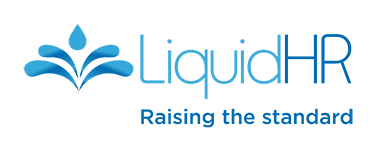In the wake of the global pandemic, Australian workplaces have experienced significant shifts in how they approach employee health, particularly mental wellbeing. The unique challenges presented by transitions to remote work, economic uncertainties, and a renewed focus on work-life integration have underscored the importance of mental health support at work. In Australia, where work culture is evolving rapidly, Human Resources (HR) departments are increasingly recognised as critical to advocating for and implementing effective mental health in the workplace strategies. Here, we delve into the specific actions Australian HR professionals can take to enhance employee mental health and wellbeing.
Understanding the Landscape of Mental Health in Australia
It’s crucial for HR professionals to grasp the extent and implications of mental health issues within the Australian context. Mental health conditions represent a significant cost to the Australian economy, with depression and anxiety leading to an estimated loss of billions annually due to reduced productivity and increased absenteeism. For HR, recognising these impacts is essential in crafting targeted wellness initiatives.
Cultivating a Supportive Workplace Culture
HR’s role in fostering a supportive workplace culture is key. This involves building an environment where mental health issues are destigmatised and where open dialogue about mental health is encouraged:
- Leadership Training: Training for leaders and managers should be prioritised, equipping them with the skills to identify mental health concerns and to handle sensitive conversations appropriately.
- Promoting Open Communication: HR can lead by example, organising regular mental health awareness activities, such as workshops and speaker events, often in partnership with recognised mental health organisations like Beyond Blue or Headspace.
Tailoring Policies to Support Mental Health
HR professionals must tailor workplace policies to better support mental health, which includes:
- Flexible Working Arrangements: With a significant portion of Australians valuing work-life balance, offering flexible working hours, remote work options, or a four-day work week can help mitigate stress and burnout.
- Enhanced Mental Health Benefits: Ensure that employee health plans include robust mental health support services, leveraging Australia’s strong healthcare framework to provide access to psychologists and counsellors.
- Generous Leave Policies: Beyond standard leave entitlements, implementing additional mental health days off and encouraging the use of all types of leave can promote a healthier work environment.
Offering Direct Resources and Support
Providing direct support and resources is another area where HR can make a significant impact:
- Employee Assistance Programs (EAPs): These should be tailored to the needs of the Australian workforce, offering services that include counselling, mental health first aid, and crisis management, accessible both in-person and online.
- Wellness Initiatives: Programs might include partnerships with local gyms, subscriptions to meditation apps like Smiling Mind, or onsite wellness activities that align with Australian lifestyle preferences.
Evaluating and Evolving Mental Health Strategies
To maintain the relevance and effectiveness of mental health initiatives, HR should continuously evaluate and adapt their strategies. This can be done through:
- Employee Feedback: Utilising surveys and focus groups to gauge the mental health atmosphere within the organisation and to gather suggestions for improvement.
- Staying Informed: Keeping up-to-date with the latest in mental health research and innovations specific to the Australian market can help HR professionals refine their approaches.
Case Study: Transforming Mental Health at Westpac Group
One exemplary success story in the Australian financial sector is Westpac Group’s implementation of a progressive mental health initiative. Recognising the crucial link between employee wellbeing and productivity, Westpac introduced a “Wellbeing Leave” policy. This innovative program grants every employee an additional two days of paid leave annually, specifically allocated for mental health rejuvenation.
The genesis of this policy was based on feedback from employees who expressed a need for better work-life balance and support for mental health challenges. Westpac’s HR team, in response, developed a comprehensive approach that not only addressed these concerns but also aimed to set a benchmark in corporate Australia for mental health support.
The impact of the “Wellbeing Leave” was profound. Within the first year of implementation, Westpac reported a 20% reduction in overall sick leave usage. This was a significant indicator of improved employee mental health, as fewer employees felt the need to take unplanned sick leave, often used previously to handle stress and burnout. Furthermore, employee surveys conducted before and after the implementation of the policy showed a 25% increase in employee satisfaction related to work-life balance.
Additionally, Westpac’s initiative has been complemented by other supportive resources, including access to mental health professionals and online wellness workshops that focus on stress management, mindfulness, and resilience. These resources are part of Westpac’s broader commitment to creating a supportive work environment that understands and prioritises the mental and emotional health of its employees.
This case not only highlights the potential positive impacts of thoughtful HR policies on mental health but also illustrates how such practices can drive tangible business outcomes, including reduced absenteeism and enhanced employee engagement. Westpac’s proactive approach serves as a model for other Australian companies looking to foster a healthier, more productive workplace.
Liquid HR is a leading HR consulting firm helping businesses of all sizes to navigate the complexities of human resource management, while providing tailored HR services based on their unique requirements, including HR Outsourcing, Recruitment and HR Advisory Services. With offices in Melbourne, Sydney and Brisbane, we work with businesses across Australia. For more information, please contact us on 1300 887 458 and speak with one of our HR Consultants












